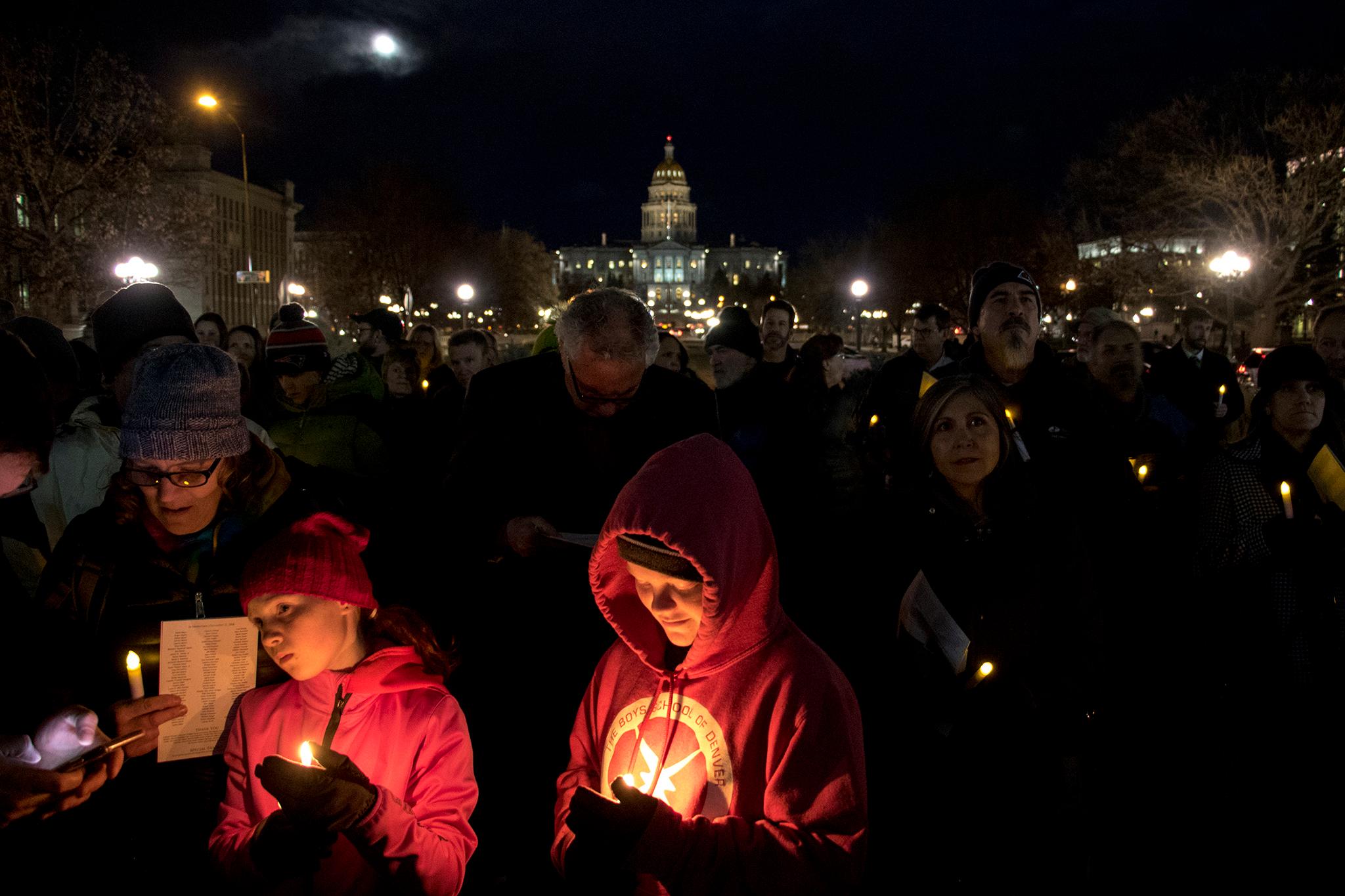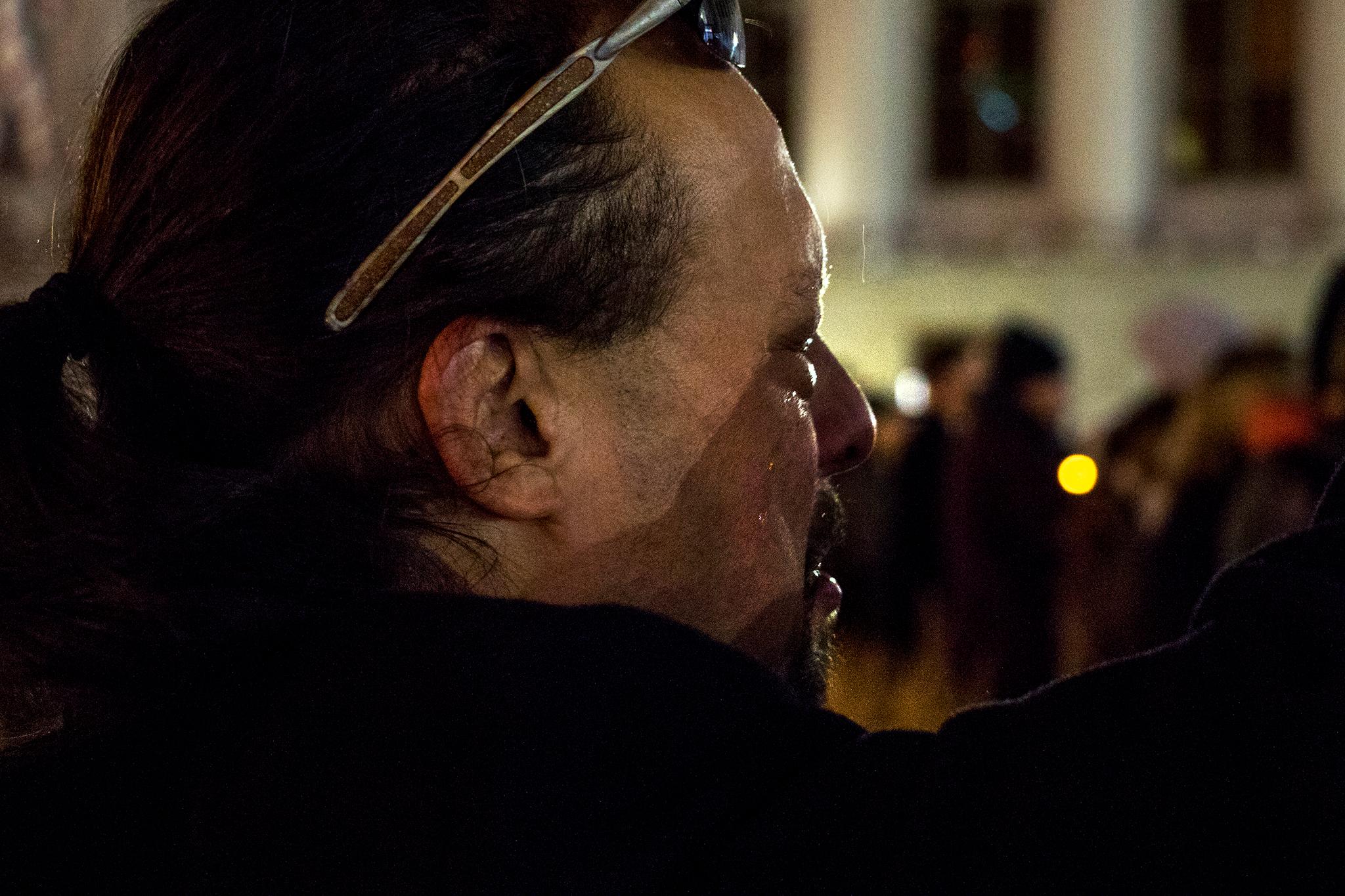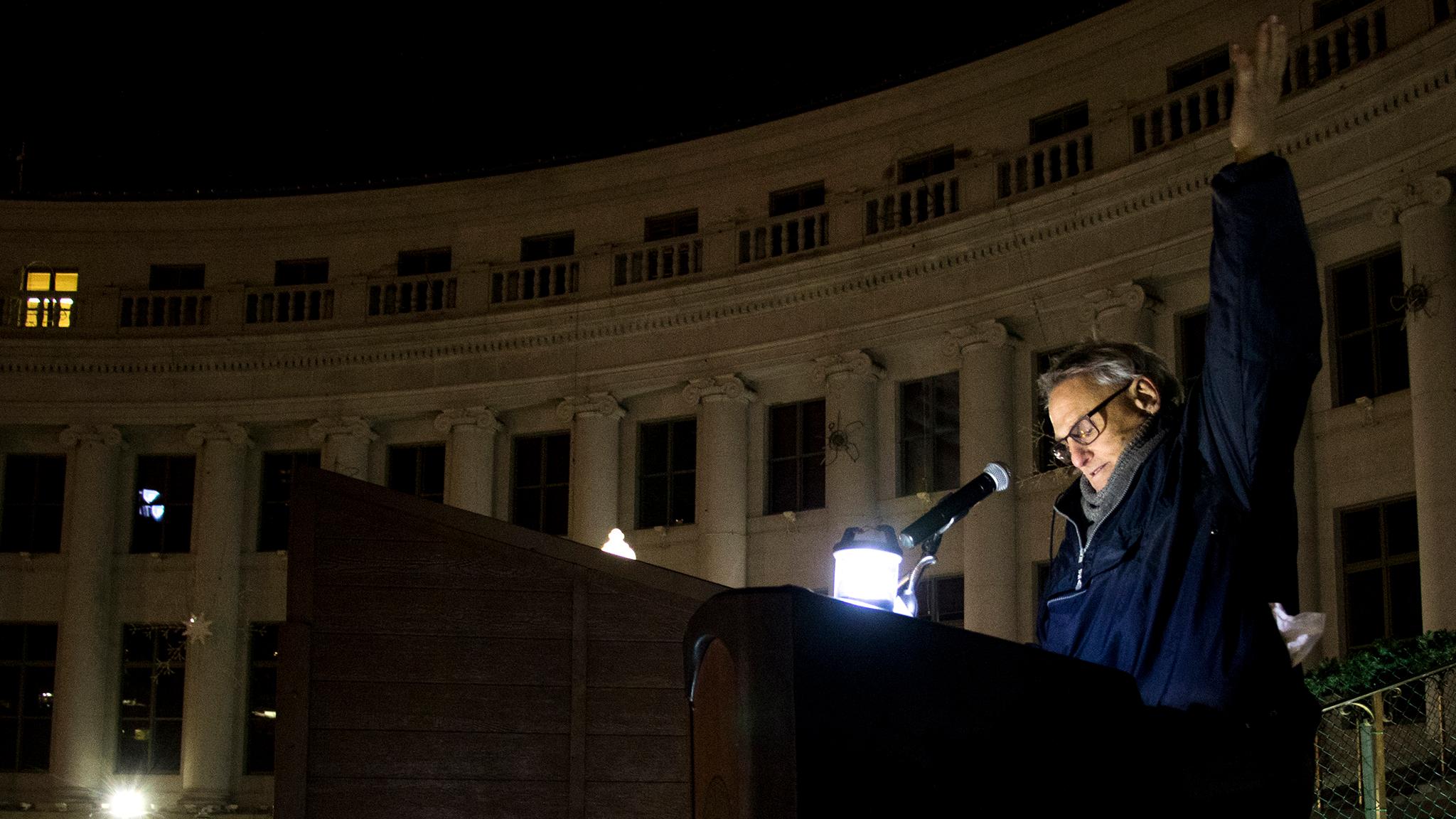His name came about halfway through the list of those who died this year after living in homelessness in Denver.
Renee Maciel, a Denver Health substance abuse counselor who had known him, said Franklin "Frankie" Meagher might have been pleased that his name was read by Randle Loeb. Loeb has experienced homelessness himself and had earlier eulogized all 233 of those whose names were declaimed from the City and County Building steps Friday evening. After each name, several hundred people holding electric candles responded: "We will remember."
Maciel said she hoped Meagher, who died in his early 40s, would be remembered for "his laughter and his smile."
The man she knew for seven years was often in poor health exacerbated by exposure to the elements. He suffered, among other ailments, from frostbite. Maciel saw Meagher often during a year of hospitalization as he awaited placement in a long-term care facility. A place finally opened up in Grand Junction, where he died soon after arriving.
The Colorado Coalition for the Homeless has for the last three decades organized the annual Homeless Person's Memorial Vigil. The focus of the event is personal, not politics or policy. Cathy Alderman, the coalition's vice president for communications and public policy, said that in past years it has been due to the vigil and the publicity surrounding that some people learned of the deaths of relatives they had lost touch with because they were living in homelessness.
"For too many this will be the only memorial service that they have," John Parvensky, the coalition's president and CEO, said as he opened Friday's event.

Clouds and an almost-full moon glowed as the sky slowly darkened over Friday's vigil. The ceremony is held on the longest, and in Denver often the coldest, night of the year. The timing brings home the conditions people living on the streets endure. Friday night was mild but windy and Saturday held a chance of snow.
The ceremony underlines an urgent reason to house people experiencing homelessness: Housing -- including the housing with job and mental health counseling and other support for which the coalition is known -- can save lives.
The number of dead rose this year for the fourth year in a row, Parvensky said. It was only a bit higher than the 231 remembered in 2017, the year of a spike from 171 in 2016. The increase in deaths has accompanied an increase in homelessness in a city facing an affordable housing crisis.
The coalition begins gathering names in November, checking with the Denver medical examiner coroner and the Metro Denver Homeless Initiative, which is a network of service providers. Representatives of some providers -- Lindi Sinton of Volunteers of America, Brad Meuli of Denver Rescue Mission, Christina Carlson of Urban Peak and Tom Luehrs of St. Francis Center -- read the names alongside Loeb on Friday from a podium placed next to the holiday manger scene.
After the reading, a call went out for anyone who was not on the list. About a dozen people in the crowd called out names and the "We will remember" response resounded again and again. The coalition acknowledged its list is incomplete, in part because of timing -- the medical examiner's report covers November, 2017 to this Oct. 31, for example.

The medical examiner was able to confirm the cause of death in 91 cases. Of those, overdose and other conditions related to substance use were the leading cause, not unexpected given America's opioid crisis. The second leading cause was blunt and sharp force trauma, which can result from violence.
The potential for chaos of life on the streets is underscored by violence like the August shooting deaths of three people police believe were homeless -- Nicole "Nikki" Boston, 28, Jerome "Rome" Coronado, 39, and Chris "Little Cowboy" Zamudio, 44 -- whose bodies were found along South Broadway near an RTD Light Rail station. Their names were among those read Friday.
The coalition's Parvensky told the mourners on Friday that he is seeing violence increase against people living on the streets.
"There are too many of our brothers and sisters who still have no safe place to be tonight," he said.
Some fear Denver's camping ban makes people living in homelessness more vulnerable. While city officials say the ban can mean people are directed toward shelter and services, some find shelters unpleasant or unsafe, or can't be accommodated because they want to stay with companions or pets. The coalition's Alderman said that when police ask people on the streets to move along, some scatter, losing any safety they had in numbers.
Loeb, who is now housed and sits on the board of the Colorado Coalition for the Homeless, traditionally contributes a eulogy in the form of a poem at the vigil. His poem this year, titled "A Hero's Journey," evoked a sense of unease on the streets:
"We're mindful of your taunts your hyper-ventilation
"Your blows
"We'll not be denied."













